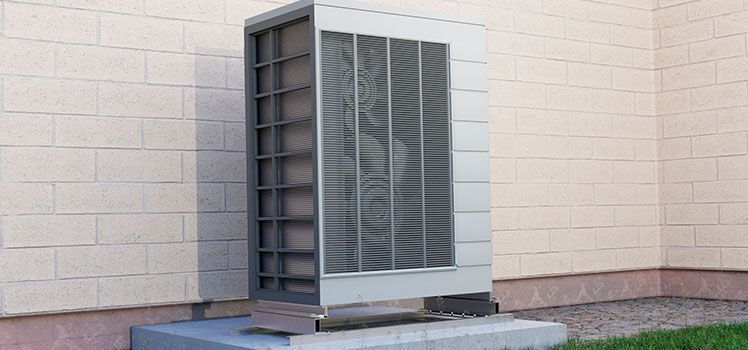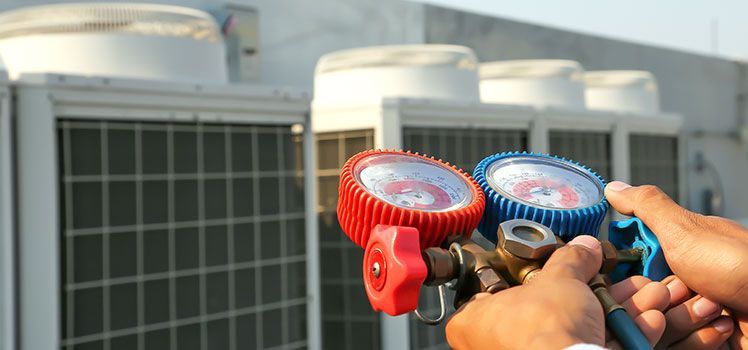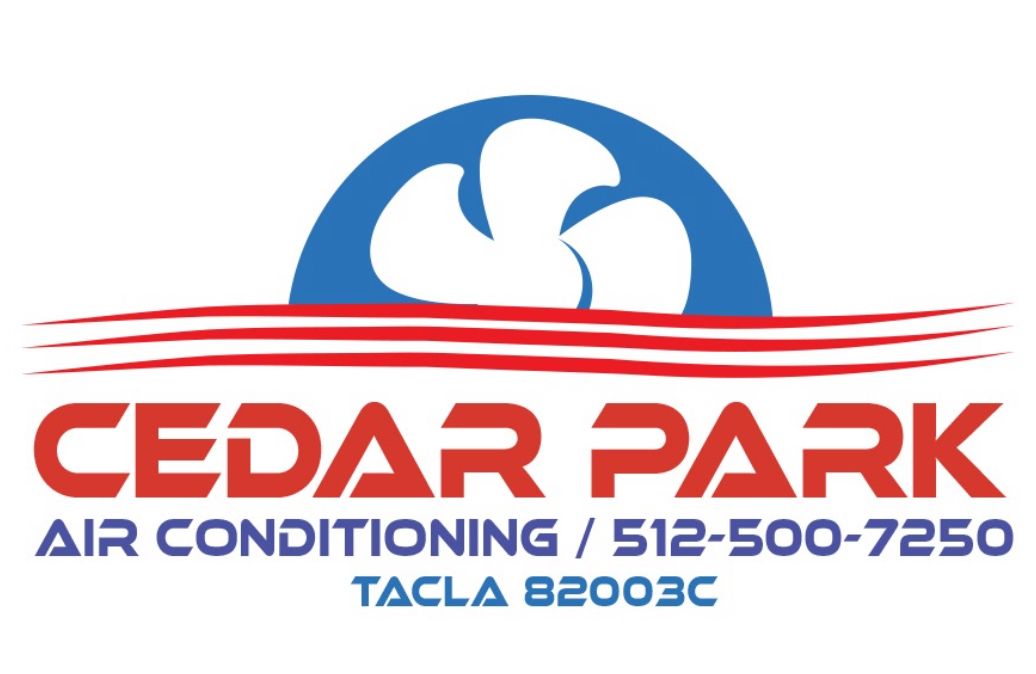Blog

September 6, 2024
Imagine walking into your home on a blistering summer day or a freezing winter night and immediately feeling the perfect temperature wash over you. That’s the wonder of a well-chosen HVAC system. Whether building a new home or upgrading your current system, making the right choice can enhance your comfort and save you money; let’s explore nine ways to help you pick the best HVAC system for your home. Assess Your Home’s Size and Layout Choosing the correct HVAC system starts with a clear assessment of your home’s size and layout. It’s crucial to avoid systems that are either too small—resulting in inadequate heating or cooling—or too large, which can lead to unnecessary energy consumption and increased costs. Measure your home’s square footage and consider room count, ceiling height, and overall floor plan. Consulting with an HVAC professional is advisable to mold your choice to your home’s unique requirements, ensuring optimal efficiency and comfort year-round. This proactive approach ensures that your HVAC system matches your home’s needs effectively. Understand Different Types of HVAC Systems There are numerous categories of HVAC systems, each with its benefits: Split Systems: These are the most common, with separate units for heating and cooling. Hybrid Split Systems: These use gas and electric power for more efficient heating. Ductless Mini-Split Systems: Ideal for homes without ductwork, these provide zoned heating and cooling. Packaged Heating and Air Systems: All-in-one systems are often installed outside or on rooftops. Understanding the pros and cons of each type can help you make a more informed decision. Consider Energy Efficiency When selecting an HVAC system, prioritize energy efficiency to maximize savings and environmental benefits. Opt for units boasting a high Seasonal Energy Efficiency Ratio (SEER) for cooling and a robust Annual Fuel Utilization Efficiency (AFUE) for heating. While energy-efficient systems may involve a higher initial investment, they deliver substantial long-term savings on utility bills and reduce your carbon footprint. By choosing wisely, you enhance your home’s comfort and contribute positively to environmental sustainability. Check for Rebates and Incentives Explore available rebates and incentives to maximize savings on your new HVAC system. Local and federal programs often offer financial incentives for installing energy-efficient units, which can substantially lower your overall costs. Check with your utility provider or visit the Energy Star website to discover what rebates are currently available in your area. Taking advantage of these programs helps you save money upfront and encourages sustainable choices that benefit your wallet and the environment. Evaluate Your Home’s Insulation Proper insulation plays a critical role in your HVAC system’s efficiency. Even the best system won’t perform well if your home is poorly insulated. Ensure your attic, walls, windows, and doors are well-insulated to keep your home at a consistent temperature and reduce the strain on your HVAC system. Consider the Climate Your local climate heavily influences the type of HVAC system you need. If you live in a region with extreme temperatures, you’ll need a system to handle those conditions. For instance, heat pumps are great for moderate climates but may not be sufficient in very cold areas. Consider your local weather patterns when selecting your system. Think About Maintenance Requirements All HVAC systems require maintenance, but some need more frequent attention. Consider how much time and money you will invest to maintain your system. Regular maintenance, such as changing filters, cleaning ducts, and checking for leaks, can prolong the life of your system and ensure it operates efficiently. Noise Levels Some HVAC systems are quieter than others. If you’re sensitive to noise or have areas where quiet is essential in your home, look for systems known for their low noise levels. Modern systems often have features designed to minimize operational noise, making them a great choice for maintaining a peaceful home environment. Budget and Financing Options Your budget will play a significant role in your decision. HVAC systems can vary greatly in price, so it’s important to balance your needs with what you can afford. Additionally, many companies offer financing options to help spread the cost over time. Look into these options to find a payment plan that works for you. Conclusion Choosing the right HVAC system for your home involves many factors, from size and layout to energy efficiency and budget. By considering these nine tips, you can make a more informed decision that will keep your home comfortable year-round. Ready to find the perfect HVAC system for your home? Reach out to our team of experts today for a free consultation and take the first step toward a more comfortable living space!

June 19, 2024
Is your HVAC system guzzling too much energy and leaving you with sky-high bills? You’re not alone. Many homeowners face the challenge of maintaining comfort without breaking the bank. Luckily, optimizing your HVAC system can make a world of difference. In this guide, we’ll explore seven practical tips to help you save energy, reduce costs, and keep your home comfortable year-round. Let’s transform your HVAC system into an energy-saving machine! Regular Maintenance is Key Regular maintenance is more than important for your HVAC system’s best performance. Just as your car needs regular check-ups, your heating, ventilation, and air conditioning unit requires professional attention at least twice a year—before the cooling and heating seasons kick in. A qualified technician will clean your system, inspect for potential issues, and ensure everything functions efficiently. This proactive approach prevents minor issues from escalating into costly repairs and ensures your HVAC system operates smoothly year-round. By prioritizing regular maintenance, you can enhance energy efficiency, extend the lifespan of your equipment, and enjoy reliable comfort in your home without unexpected disruptions. Replace or Clean Air Filters Monthly Replacing or cleaning your air filters is crucial for maintaining HVAC efficiency. Dirty filters always block airflow, forcing your system to work continuously and consume more energy. This strain raises utility bills and can contribute to potential system malfunctions over time. To prevent these issues, develop a habit of checking your air filters monthly. If they appear dirty, clean or replace them promptly. Opting for high-quality filters enhances HVAC performance and improves indoor air quality, promoting a healthier environment for you and your family. This simple maintenance task ensures your HVAC system operates efficiently and reliably, reducing the risk of unexpected breakdowns. Install a Programmable Thermostat Installing a programmable thermostat can significantly boost your energy savings. Unlike traditional thermostats, it lets you schedule different temperatures throughout the day, preventing your HVAC system from running unnecessarily. For instance, you can lower the temperature while you’re away at work and raise it before you return home. This smart adjustment can significantly reduce your energy costs over time. By optimizing your heating and cooling cycles to match your daily routine, a programmable thermostat not only enhances comfort but also promotes efficiency. It’s a practical investment that maximizes energy efficiency without sacrificing comfort in your home. Seal Your Ductwork Sealing your ductwork is crucial for optimizing HVAC efficiency and reducing energy waste. Leaky ducts can lead to significant loss of conditioned air, resulting in higher energy bills. Regularly inspect your ductwork for leaks and seal them using appropriate methods such as duct tape or mastic sealant. This simple step can improve your system’s efficiency by up to 20%. Additionally, ensure all ducts, especially those in unconditioned spaces like attics and crawl spaces, are properly insulated. Addressing these areas can enhance overall HVAC performance, maximize energy savings, and maintain consistent comfort throughout your home. Upgrade to Energy-Efficient Equipment If your HVAC system is over 10-15 years old, it might be time for an upgrade. Newer systems are much more energy-efficient and can significantly lower your energy consumption. Always focus on looking for units with a high SEER rating. If the SEER rating is high, the system will be more efficient. While the initial investment can be high, the long-term savings and improved comfort make it worthwhile. Utilize Ceiling Fans Ceiling fans can help circulate air and reduce the workload on your HVAC system. In the summer, set your ceiling fans to rotate counterclockwise to create a cooling breeze. In the winter, switch them to clockwise to push warm air down from the ceiling. Using ceiling fans with your HVAC system allows you to raise the thermostat a few degrees in summer and lower it in winter, leading to energy savings. Improve Home Insulation Good insulation keeps the heat out in the summer and winter, reducing the load on your HVAC system. Check your home’s insulation, particularly in the attic and walls. If it’s insufficient, consider adding more. Weatherstripping doors and windows can also prevent air leaks, making your home more energy-efficient and comfortable. Conclusion Optimizing your HVAC system doesn’t have to be complicated. Following these seven simple tips, you can save energy, reduce utility bills, and enjoy a more comfortable home. Regular maintenance, clean filters, a programmable thermostat, sealed ductwork, energy-efficient upgrades, ceiling fans, and proper insulation all play a crucial role in achieving this. Ready to start saving? Contact us today to schedule your HVAC system maintenance and take the first step towards a more energy-efficient home. Your wallet—and the planet—will thank you!
Cedar Park, TX
78613
Copyright © Cedar Park Air Conditioning | All Rights Reserved
